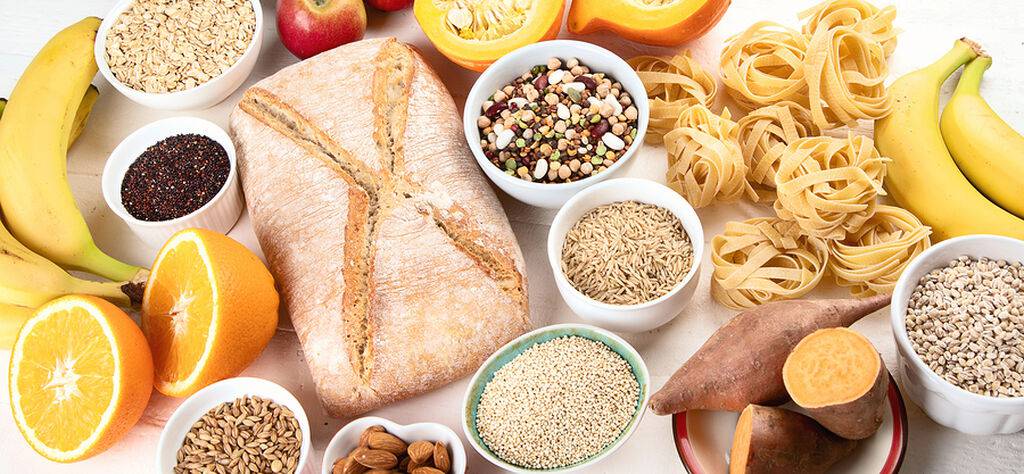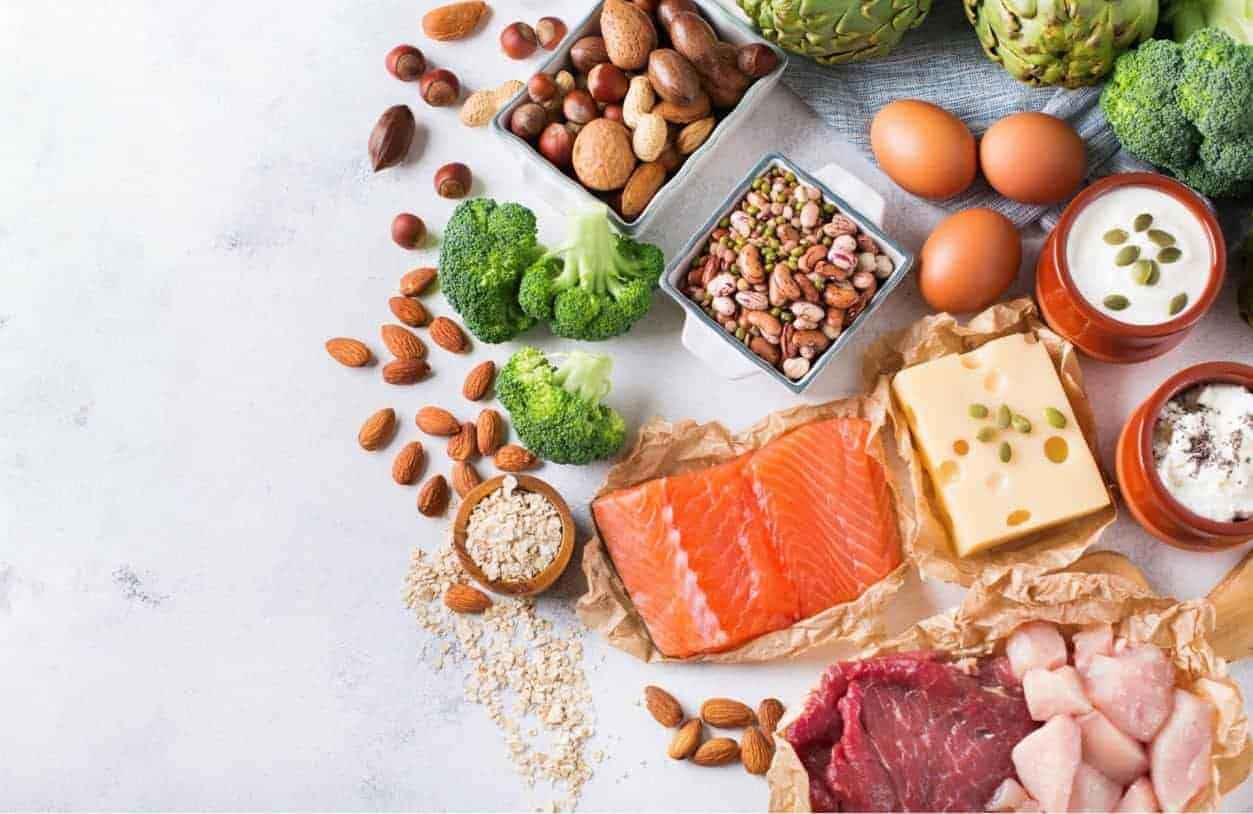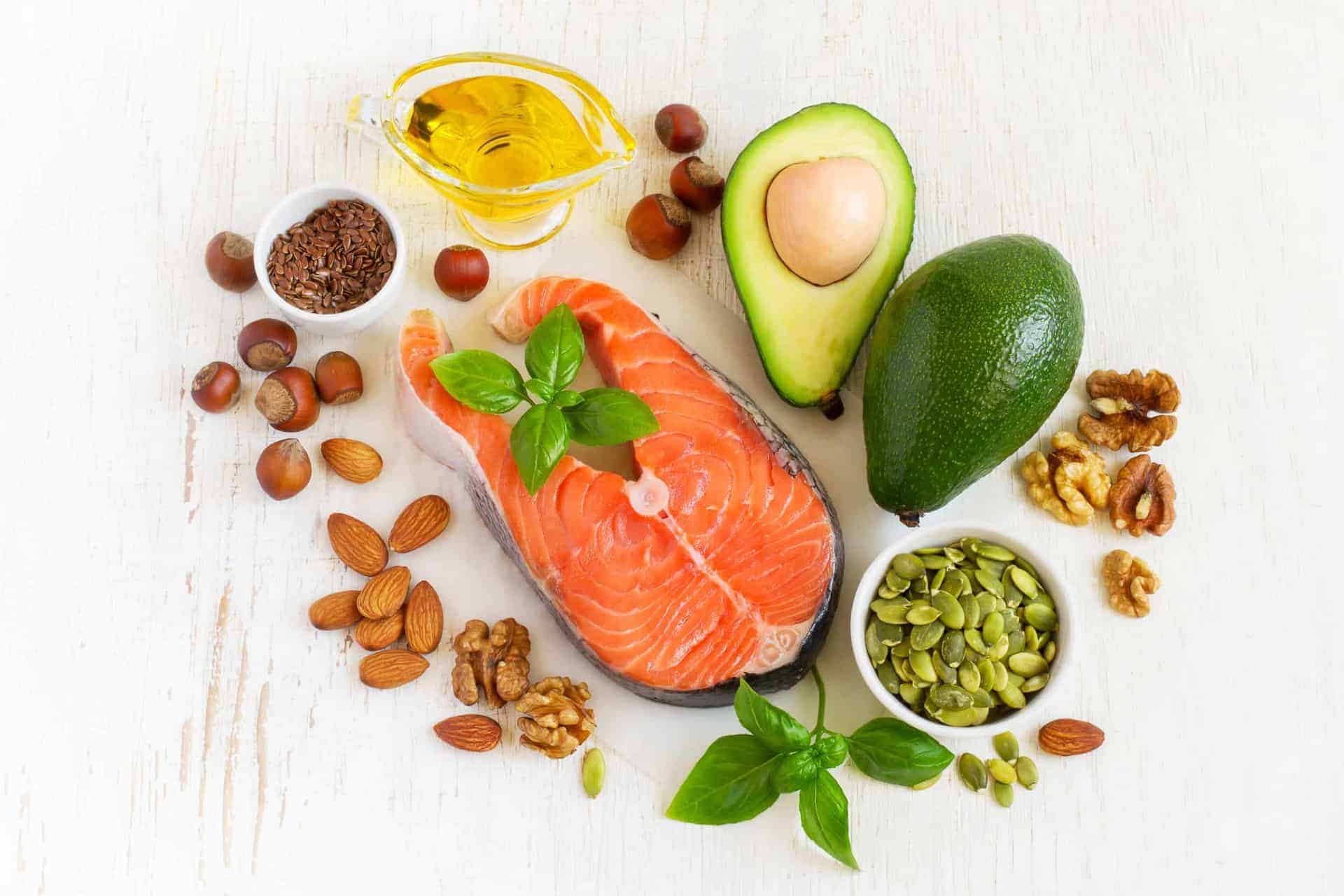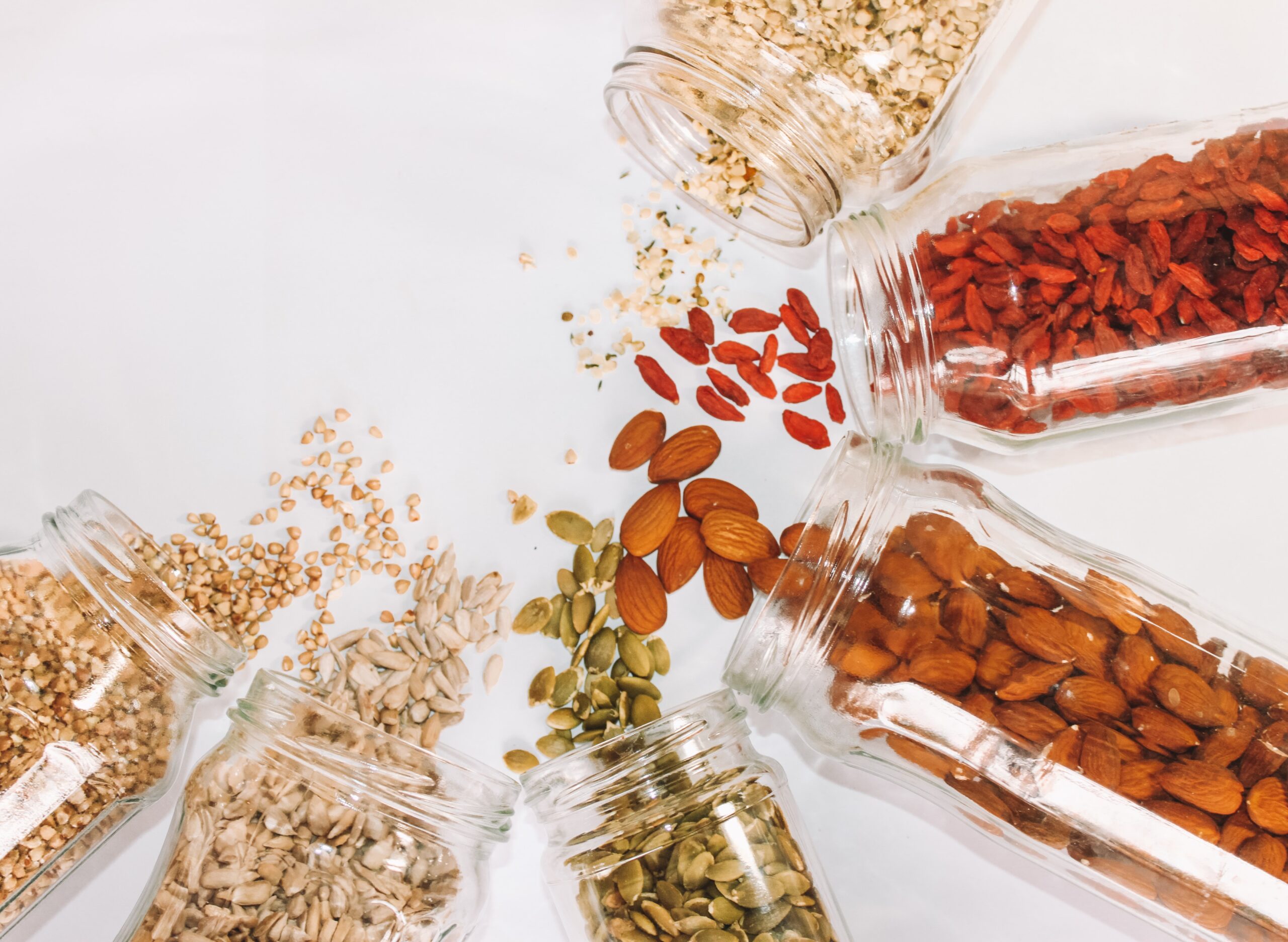Post-workout nutrition is an important part of a healthy routine and it’s a good idea to learn what it is and why we need it! All of the macro-nutrients – that is, carbohydrates, protein, and fat – play a role in post-workout recovery. Tending to your post-workout nutrition can help you refuel, rehydrate, and ultimately recover post-exercise. It can even help you get ready for the next workout, as well!

What Happens Post Workout
Before we know what we should eat after a workout, we should find out why we need anything in the first place.
During exercise, muscles use the energy that they have stored in the form of glycogen. This is also the body’s main source of energy during workouts. However, that glycogen doesn’t replenish itself, so after a workout your muscles become depleted.
Another thing that happens during exercise is muscle fiber tearing. This happens especially when you are focusing on strength training. This means that proteins in your muscles are broken down or damaged and will need to be repaired.
So that means by the time you are finished with your workout, your body is pretty much broken and depleted (and darn don’t we feel it sometimes!). Luckily, if you eat the correct nutrients shortly after you exercise, your body will be able to complete this task more quickly. After your workout, it’s very vital to eat a nutritious and mixed meal or snack to refuel.
Benefits of Post Workout Nutrition
As mentioned above, post workout nutrition allows us to replenish glycogen, decrease protein breakdown, and increase protein growth all while generally enhancing recovery. Some other proposed benefits include a decrease in muscle soreness, an increase in bone density, improved immune function, and better utilization of body fat (1).
And for all of these benefits to occur, it all comes down to availability. Macronutrients must be accessible from dietary sources in order for our bodies to utilize them to rebuild, repair, and heal. And if they’re available, our bodies are more inclined to take advantage of them. The presence of nutrients can offer spectacular benefits during the “window of opportunity” that occurs after an exercise. This window is when our muscles are ready and very willing to take nutrients that can help with muscle repair, development, and strength at this time. It appears shortly after you finish your workout and closes pretty rapidly. While protein synthesis is thought to last for at least 48 hours after exercise, research supports getting post-workout nourishment as soon as possible, preferably within one hour.
Macro-nutrients for Post Workout Nutrition
All three macro-nutrients, as well as hydration, are key players when it comes to post exercise recovery. Keep reading to learn more about how each one benefits you.
Carbohydrates

Carbohydrates serve as fuel for the body and are the body’s natural source of energy. They are stored in our muscles as glycogen, which is used as fuel during activity. Our glycogen stores are reduced depending on the intensity of our workouts; the more intense the activity, the more glycogen is used. By taking carbs post-workout, we may more readily restore stored glycogen and begin the healing process. Consuming carbs post-workout is especially key for endurance athletes or athletes that exercise for several hours or numerous times per day. Another thing to keep in mind is that when carbohydrates and protein are ingested together, insulin production, which stimulates glycogen formation, is increased more effectively (1).
Choose complex carbohydrates as a part of your post work out routine such as fruit, whole grains, legumes, and starchy vegetables.
Protein

Protein consumption after an exercise aids in muscle regeneration and recovery. It does this by providing amino acids to the body, allowing it to rebuild muscle proteins broken down during exercise. Consuming protein post-workout helps to avoid protein breakdown and increases muscle protein synthesis, which supports the growth and maintenance of muscular tissue (1). The amount of protein required by an individual varies based on the type of activity and athlete, but eating around 15 to 25 grams of protein post-workout is a decent rule of thumb to follow.
Choose lean proteins as a part of your post work out routine such as poultry, seafood, eggs, and dairy.
Fat

Because it is associated with reduced rate of digestion, fat has gotten a bad rep in post workout nutrition. Many assume that because it takes so long to digest (therefore delaying the other parts of your meal, as well) that you’ll miss the optimal time to absorb nutrients. However, according to research from Washington University School of Medicine, omega-3 fatty acids help to accelerate muscle protein synthesis and expand the size of muscle cells in healthy young and middle-aged individuals (2). Another study indicates that omega-3s in fish oil may aid in the reduction of muscular pain and discomfort following resistance exercise (3).
So go for healthy, easier to digest omega-3 fatty acids such as seafood, nuts, and flaxseed so that you can improve your body’s ability to absorb all of those important nutrients.
Water

Rehydration is important not just after, but also before and throughout an exercise. It aids in the replenishment of fluids lost during exercise, as well as improving muscular flexibility, increasing strength, and preventing muscle pain (4). So drink plenty of water or nutritious beverages like coconut water, green or black tea, and chocolate milk. Hydrating fruits and vegetables can also provide fluids (but don’t rely only on them for hydration; water is ideal).
Mix it Up
Mix and match macro-nutrients in your post workout snack by packing some not only nourishing but delicious pairings. Check out some ideas below:
- 2 hard boiled eggs + 1 banana
- 3 oz sliced turkey + ½ cup + 1 oz whole wheat crackers
- 1 oz cheese stick + 1 apple
What Not To Eat After a Workout
Sugar, spice, and the not so nice should be avoided after a workout!
Sugar
Added sugars from sneaky “health” foods like protein bars and shakes as well as energy shouldn’t play a major role in your post workout routine. They are usually packed with added sugars that can lead to a crash later on.
Spice
Enjoy a little spice after your training sesh? Unfortunately this isn’t the best idea. Spicy food causes stimulation in the digestive system, which can lead to heartburn and digestion problems, especially after an exercise when your body is low in energy and is trying to undergo repairs. Because your body is attempting to heal itself, you should try to go for meals that are simple to digest.
Alcohol
Alcohol should not be had after or even before a workout. Alcohol can actually impair the recovery process in your muscles by inhibiting certain hormones. It’s also a diuretic, causes dehydration and can cause you to become even more dehydrated that you already would have been post exercise.
Summing It Up
Following a workout, consuming carbs, proteins, and healthy fats aids in muscle protein repair and growth as well as promotes optimal recuperation. After an exercise, plan to consume a snack as soon as you can, and ideally within the first hour. Remember to drink water before, during, and after exercise to replace fluids and electrolytes.
Want more? Pre and post workout recovery are just some of the many awesome and interesting things we cover in our The Key to Champ City: Be The Leader of Your Health Nutrition Guide.
Sources:
- Kerksick C, Harvey T, Stout J, Campbell B, Wilborn C, Kreider R, Kalman D, Ziegenfuss T, Lopez H, Landis J, Ivy JL, Antonio J. International Society of Sports Nutrition position stand: nutrient timing. J Int Soc Sports Nutr. 2008 Oct 3;5:17. doi: 10.1186/1550-2783-5-17. Erratum in: J Int Soc Sports Nutr. 2008;5:18. PMID: 18834505; PMCID: PMC2575187. https://pubmed.ncbi.nlm.nih.gov/18834505/
- Smith GI, Atherton P, Reeds DN, Mohammed BS, Rankin D, Rennie MJ, Mittendorfer B. Omega-3 polyunsaturated fatty acids augment the muscle protein anabolic response to hyperinsulinaemia-hyperaminoacidaemia in healthy young and middle-aged men and women. Clin Sci (Lond). 2011 Sep;121(6):267-78. doi: 10.1042/CS20100597. PMID: 21501117; PMCID: PMC3499967. https://pubmed.ncbi.nlm.nih.gov/21501117/
- VanDusseldorp TA, Escobar KA, Johnson KE, et al. Impact of Varying Dosages of Fish Oil on Recovery and Soreness Following Eccentric Exercise. Nutrients. 2020;12(8):2246. Published 2020 Jul 27. doi:10.3390/nu12082246 https://www.ncbi.nlm.nih.gov/pmc/articles/PMC7468920/
- American College of Sports Medicine, Sawka MN, Burke LM, Eichner ER, Maughan RJ, Montain SJ, Stachenfeld NS. American College of Sports Medicine position stand. Exercise and fluid replacement. Med Sci Sports Exerc. 2007 Feb;39(2):377-90. doi: 10.1249/mss.0b013e31802ca597. PMID: 17277604. https://pubmed.ncbi.nlm.nih.gov/17277604/







